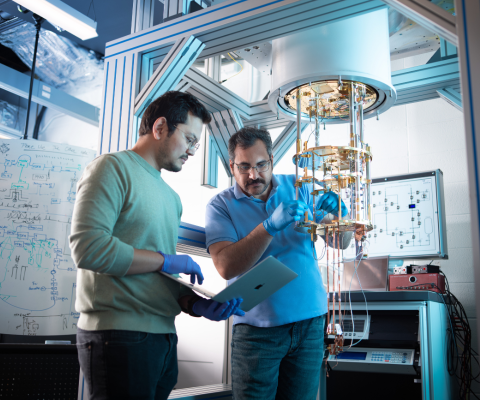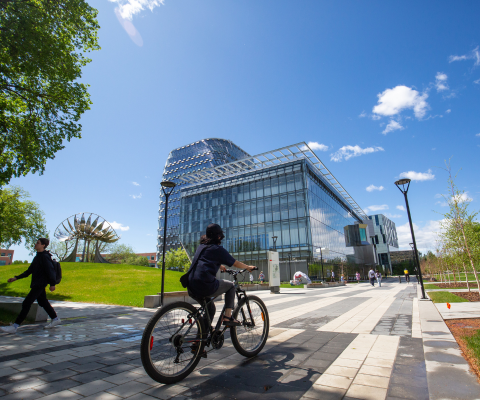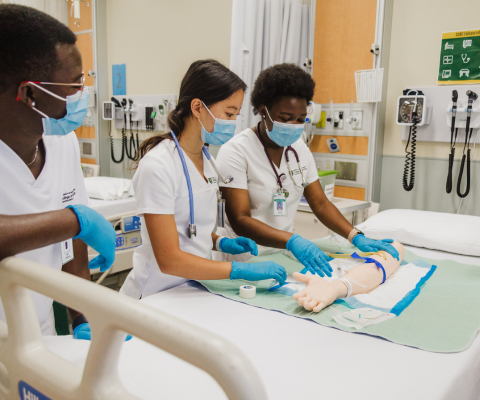Universities are advancing technology through international partnerships

Technology now permeates all parts of our lives—it can add convenience, open communication and advance industries with the click of a button. Much innovation in technology has come from research done across the world, countries in partnership with one another and building off one another’s successes.
Learn how Canadian universities are collaborating worldwide to create and improve on technology to solve problems and improve lives.
Creating more accessible energy sources
A collaboration between universities in Canada and France has seen a major breakthrough in the manufacturing of micrometric photovoltaic cells—solar cells that are less expensive, more powerful and have a number of applications. From powering space exploration with lightweight nuclear batteries to miniaturizing telecommunication devices, the cells make this new, powerful technology less expensive and more accessible. Solar cells also, as the name suggests, convert sunlight into electricity, making this a leap in sustainability efforts as well.
Launching Canada out of the atmosphere
Multiple Canadian universities were previously selected to participate in the Canadian CubeSat project—an innovative educational program which engages students in real space missions. This program is replicated worldwide, using the International Space Station as a home base and Japanese technology to deploy them into space. Students at the University of New Brunswick will soon launch the province’s first satellite into space through the Canadian CubeSat project. CubeSat projects truly represent what international collaboration can accomplish, using technology developed worldwide.
Coming together to assess AI risks
A Canadian researcher, Dr. Yoshua Bengio, was recently selected to chair a report on the risks and capabilities of artificial intelligence. Commissioned by the U.K. government, the report is in response to a declaration made by countries attending the AI Safety Summit in November 2023. The declaration was signed by Canada, the U.K., U.S., European Union and 25 other jurisdictions. Dr. Bengio’s findings will inform policies in all these countries to safeguard their democracies and societies from the risks of AI.
About Universities Canada
Universities Canada is the voice of Canada’s universities at home and abroad, advancing higher education, research and innovation for the benefit of all Canadians.
Media contact:
Lisa Wallace
Assistant Director, Communications
Universities Canada
[email protected]
Related news
-

BCDI 2030 launches second round of funding for scholarship projects for study in Canada
-

Universities Canada's response to Minister Miller's announcement on international student caps
-

How international research partnerships are helping us tackle world health issues
-

Canada’s post-secondary institutions to help empower African students with the first 14 BCDI 2030 projects
